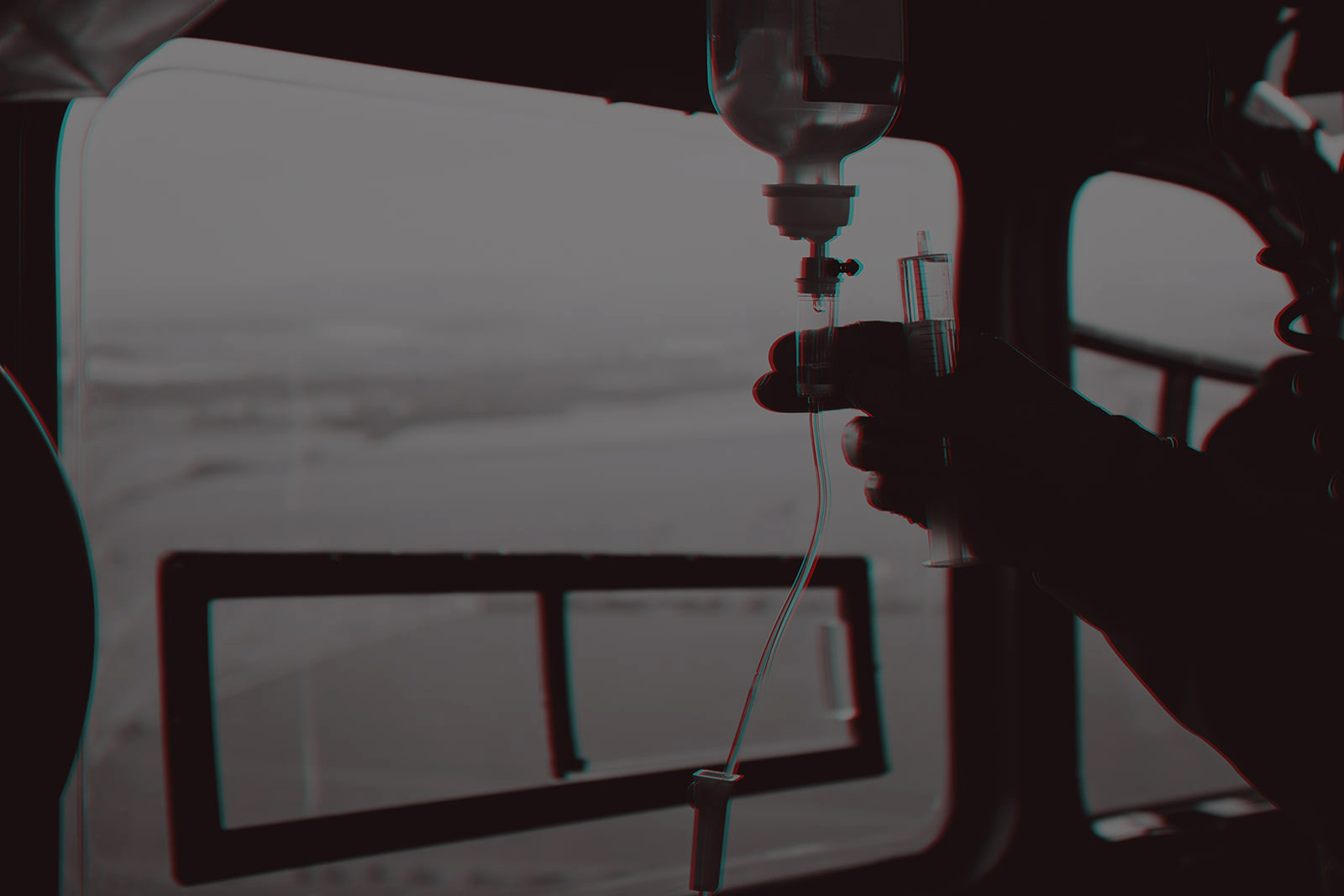
We understand customers want to come home as quickly as possible after falling ill abroad, we really do, and we want to get our customers home – we just aren’t prepared to do that until it is safe to do so.
Learn more
Sometimes when travelling, the unfortunate can happen that results in you needing medical treatment abroad. You may be in unfamiliar territory, sitting in a hospital ward whilst doctors and nurses are communicating in a language unknown, and feeling very vulnerable. The only thing on your mind is to return home whilst being supported by your loved ones and receiving treatment from NHS standard clinics.
This is not an uncommon feeling, and rightfully so as during times of vulnerability, we all want to be in familiar and secure surroundings. Whilst you may want to return home as soon as possible, there are extremely good reasons why returning home immediately after medical treatment abroad may not be in the best interest of your health and safety.
When we transport our customers back home, we may decide to use air ambulances. Air Ambulances are similar to regular ambulances, they are equipped with appropriate but limited apparatus vital to monitoring and treating injured or ill patients. There are very good reasons why we may decide not to use, or delay the use of an air ambulance in some situations.

A request for an Air Ambulance is taken very seriously and is reviewed by our medical team, who have to consider what risk is attached to transferring patients by air either commercially or in an Air Ambulance. Their decision is based upon what is medically appropriate.
We understand customers want to come home as quickly as possible after falling ill abroad. We want to get our customers home, we just aren’t prepared to do so until it is medically safe.

If someone is unwell, their health is compromised. As examples; their body is fragile, their organs are struggling, they are post- surgery, have excess fluid in places it shouldn’t be, have abnormalities to blood levels. Then flight at any level, even in an Air Ambulance, is extremely dangerous and is likely to worsen a condition - in a number of medical situations it can result in premature death.
We refer to this as being ‘medically contraindicated’ - A particular course of action being inadvisable on medical grounds which could result in more harm than good
There is a lot of information available on the effects of aviation and altitude on the body. Our decisions are considered carefully with all the medical information we can obtain from the treating doctor, which is then passed to our medical team and aviation specialists who make an assessment based on their clinical expertise.
We make a conscious decision to consider the effect on the body, organs, bodily functions and clinical stability and the optimal recovery of a patient.

We know that when people find themselves in a medical situation overseas, they are frightened and quite simply just want to get home as quickly as possible. When this wish to get home is delayed or refused, we appreciate the frustration this can cause.
Our doctors know that their decision to either delay or refuse an Air Ambulance is going to come as a disappointment to our customers and their loved ones. It is possible that an Air Ambulance transfer is an option some days or weeks later than requested, but only when the clinical risk of moving a patient is less than the risk of not moving.
This is our decision and one which we will stand by because it is the right thing to do for our customers clinical best interests.
We understand and completely appreciate customers may not want to remain in overseas hospitals. However, at times it is simply not medically appropriate for customers to return home before they have treatment. tifgroup assess each circumstance on a clinical basis, with knowledge of the treating hospitals; to establish that the required treatment is available and suitable locally.
We make decisions as to whether there is any clinical benefit that outweighs the risk involved in a delay of immediate treatment and undertaking the complications associated with transfer back to the United Kingdom for treatment.

If customers are worried about the standard of care they may receive, it is useful to understand that the UK health service is actually ranked as inferior to a number of countries both inside and outside of Europe:
| Country | Position |
|---|---|
| France | 1 |
| Italy | 2 |
| Spain | 7 |
| Portugal | 12 |
| Greece | 14 |
| United Kingdom | 18 |
There is a lack of adequate medical facilities locally, as confirmed by our medical team.
The treatment required is long term and would be best to be undertaken by a usual consultant or a UK NHS based consultant for continuity of care for long term, chronic conditions.
If there are adequate facilities available locally, we would recommend the immediate treatment in resort followed by a period of stability, where we then make arrangements to get our customers home.
Customers are unhappy about the situation and make it clear that they intend to complain, to the highest level. BUT they do take our advice and allow us to repatriate them when it’s safe to do so.
We reluctantly provide customers with details of AA companies we know and trust, for our customers to arrange the AA themselves. If the customer or their family, having had the risks explained to them by our doctor, wish to try organise this themselves then they are free to do so and to then seek reimbursement from the insurer.
However, accepting that any failed attempts of repatriation are at their own risk.
Our hope in these situations, is that despite being unhappy with the decision to delay or refuse an Air Ambulance, that our customers and their families at the very least listen to our recommendations and allow our medical team to proceed with clinically appropriate arrangements.
We had an elderly patient overseas who had suffered a subdural brain haemorrhage; a bleed of the brain caused by trauma or a significant damage to the blood vessels in the brain.
The outlook for Subdural Haemorrhages is generally poor and a proportion of people die even with prompt surgery. It usually results in injuries to other parts of the brain and can result in long term neurological problems, as it causes pressure to the brain (intracranial pressure) which can damage very delicate brain tissue, if the patient survives.
The patient was in an area of the world where the medical facilities are unfortunately inferior to the UK. This is a geographical hazard that we can’t control but instead had to consider whether the risks of him staying there were greater than moving him.
The patient’s clinical situation meant he was unlikely to be well enough to return home on a normal plane and so it was known that at the point that his condition stabilised and he met the clinical requirements for aviation transfer by Air Ambulance that this would be the course of action taken. The medical information provided to us from the treating Doctor, was passed to our Doctors, and one specifically who has worked at one of the most respected Neurological centres in the United Kingdom, so was best placed to make the assessment as to when to transfer him.
The family made it clear that they wanted him back in the UK, immediately and did not appreciate the recommendations made by our Doctor.
The reality was that this patient had swelling on the Brain and placing him into an Air Ambulance at that time, would have further deteriorated his condition and the risk of fatality was high, something our doctors were not prepared to risk. After much pressure from the family, we provided them with details of air ambulances companies they could use, sadly within 36 hours the patient had passed away. This was not as a result of him having been denied transfer by AA, this was something we had considered at the time, to be a high possibility.
We were desperately trying to prevent a fatal outcome and preventing his death included NOT putting his brain into an environment that is contraindicated to his clinical situation and where we were unable to keep tight control of physiological variables that could make what was very critical situation, worse. There wasn’t anything we could have done to prevent this terrible outcome. We simply tried to keep their loved one safe and alive for as long as we could by making sure he was not placed into any unnecessary risk.
Our moral obligation to try and assist the patient and their family unfortunately resulted in a complaint, which at its heart was an accusation above our motives. To that, our motives was simply to ensure best clinical outcome for our customer.
Our position on where customers receive medical treatment is based solely on optimal care.
Learn moreTiming is Everything. We discuss our Considerations for Premature Babies Abroad.
Learn moreIf you’re unlucky enough to need to seek emergency medical treatment abroad, there will most likely be costs involved for your treatment or medication.
Learn moreWe have real case studies that are quite frankly horror stories. We want you to be aware of these situations, so you can at the very least choose to protect yourselves, whether you are insured by us or not.
Learn more